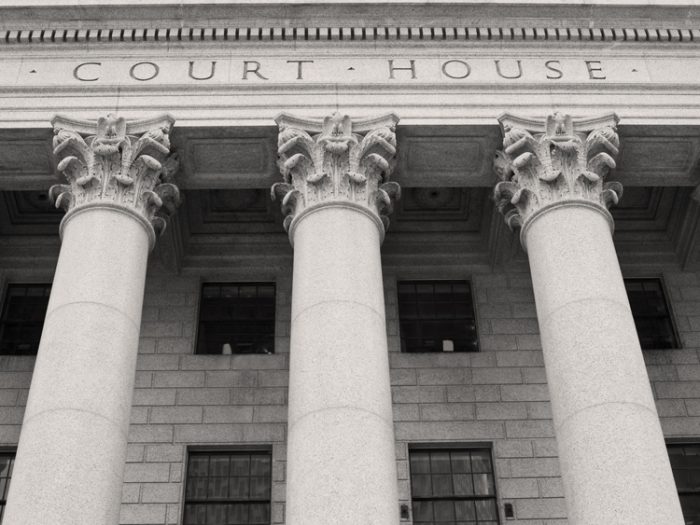5 Court Cases Shaping Business Interruption Claims After COVID-19

First came the virus. Then came the lawsuits.
With businesses stopped in their tracks, many have turned to their insurance companies for business interruption coverage — only to get denied.
Typically part of property coverage, business interruption is applicable only when there is physical damage to property. Oftentimes, there are virus exclusions in the policy language. Still, businesses across the world are suing their insurance companies (and brokers, in some cases) over the coverage denials.
Now that cases are making their way through the court systems, the ensuing litigation will be nothing short of fascinating.
Will attorneys successfully argue that the mere presence of a virus constitutes physical damage? If one business is successful in getting a claim denial reversed, will it set a legal precedent other attorneys can cite?
Answers to those questions should begin to take shape in the coming months.
For now, let’s examine five fascinating court cases to learn how BI claims could play out in the wake of COVID-19.
1) French Court Rules Insurer Must Pay Restaurant Claims
A Paris restaurant owner successfully argued that his insurer, AXA, should pay for two months of income loss due to the pandemic. The ruling in late May continues to draw the attention of restaurant owners and insurers around the world.
Reuters reports that “some other French insurers have said they will pay out business interruption losses to some customers, depending on specific contracts. Generali France, for example, has said it will make payments to 600 hospitality businesses.”
It also reported AXA chief executive Thomas Buberl said the case represented just a small subset of restaurants it insures — about 10%.
While the case doesn’t hold any legal precedent in the United States, some American trial courts will undoubtedly come to the same conclusion. Regardless of policy language, some judges or juries may want to protect small businesses and rule in their favor.
“That’s the reality of insurance law and claims. These are real people, real businesses, who paid premiums for their policies,” said Brett Carey, partner at law firm Rumberger Kirk. “[For] the courts, particularly if judges are voted in by the people, sometimes it’s difficult to make tough decisions to shutdown an insured’s business when they’re relying on this coverage to keep going.”
The most interesting action, he said, will play out in appellate courts where opinions are binding.
2) Judge Says Salons, Restaurants Can Sue Insurers Over COVID Denials
U.S. District Judge Stephen Bough in Kansas City is allowing a group of salon and restaurant owners to sue Cincinnati Insurance Co. over denied business interruption coverage. Attorneys for the businesses allege that COVID-19 led to a “direct physical loss” that damaged property and rendered them unsafe and unusable, according to Reuters.

Brett Carey, partner, Rumberger Kirk
Carey was not surprised it passed the motion-to-dismiss phase, because plaintiffs’ attorneys specifically used words in their complaint that appear in the policy — like “unusable” or “uninhabitable.”
“What they alleged in the case mirrored the language that could potentially trigger coverage if their facts later come out to be true,” he said. “That was a well-plead complaint.”
Even if the businesses prevail over their insurance companies, it doesn’t necessarily mean a precedent would be set for others to prevail, too, said Mike Fink, executive general adjuster for Engle Martin & Associates.
“None of these policies are one-size-fits-all,” said Fink. “All the claims are different, the policies are different, the coverages are different. The majority of the cases I’ve seen in New Jersey, Ohio and Florida still say that if there is no physical damage, there is no trigger for any kind of business income relative to civil authority and/or ingress/egress.”
3) Minor League Baseball Teams Sue as Ballparks Sit Empty
At least 157 minor league baseball teams have canceled their seasons due to the pandemic. That will cost them dearly, as the in-person experience is everything.
Selling hot dogs, cotton candy and merchandise are big money makers — and they don’t have rich TV contracts like the pros.
USA Today reports: “For every one of these teams and their vendors, the summer of 2020 will have to be written off as a complete bust, with total losses expected to far exceed $100 million.”
Now these teams are suing their insurance companies for business interruption but have already received denials due to virus exclusions and the lack of physical damage.
In the ensuing court battles, teams still need to show physical loss, said Carey. “Is it really just economic loss caused by a shutdown order? Because, in my opinion, the language of these policies is not going to cover those claims.”
Fink said that one alternative is loss of attraction coverage.
“Loss of attraction is one coverage that may be a viable option for risk transfer purposes,” he said. “However, the economics of purchasing such a coverage may be prohibitive. If they don’t have loss of attraction coverage or the policy cites a need for direct physical damage, where’s the trigger for your BI?”
4) Legal Firm Said Business Was Interrupted Because Its Clients Were Not Operating
Magna Legal Services sued Hartford Fire Insurance Co. over the denial of business interruption claims.
Law360 reports: “Magna claimed in the complaint that it’s experienced more than $50,000 in damages since the government-ordered shutdowns, and that its all-risk policy with Hartford should cover all physical loss and damage unless specifically excluded.”
Magna also said its business suffered because many of its clients — like law firms, corporations and government agencies — were shutdown or slowed due to pandemic closures.
Magna later withdrew the lawsuit. That’s significant, because if a legal entity couldn’t find a path forward, other businesses might not either.
One interesting nuance was Magna’s claim that its insurance broker never explained pandemic/virus coverage was excluded. There’s no denying that many business owners were mystified to learn their policies did not cover losses from a pandemic. If made successfully, this argument could have possibly led to a strong legal precedent — but it appeared to be a tough argument to make.
“We’ve seen a lot of absolute virus exclusions and microorganism exclusions in these policies. Somewhere down the line, virus was taken into consideration,” said Fink. “As claims professionals, we recognize that 99% of the time, most people don’t look at their insurance policies until they sustain a loss.”
5) Chicago Restaurants Suing Over COVID Denials.
Six Chicago bar and restaurant groups sued Society Insurance over denied business interruption claims.
They state that Society Insurance “wrongfully denying payouts because restaurants and bars didn’t suffer property damage or loss during the pandemic,” according to Eater.
It’s a microcosm of the restaurant cases playing out around the country right now. Shocked and frustrated restaurant owners were denied coverage during the pandemic and want retribution.
To succeed, plaintiffs’ attorneys will need to get creative. Some are asserting that surfaces contaminated with the virus are “damaged.”
Fink, however, said that argument is a tough sell in court, because you can easily clean and sanitize the surface.
“I don’t really understand that argument. I know COVID-19 is a new virus, but viruses have existed forever, so if a person walks around with the flu and sneezes inside a restaurant, isn’t that the same situation?” said Fink.
“Where’s the damage? If you wipe off a counter top with a disinfectant, it takes you seconds or minutes.” &










